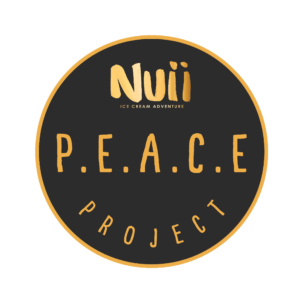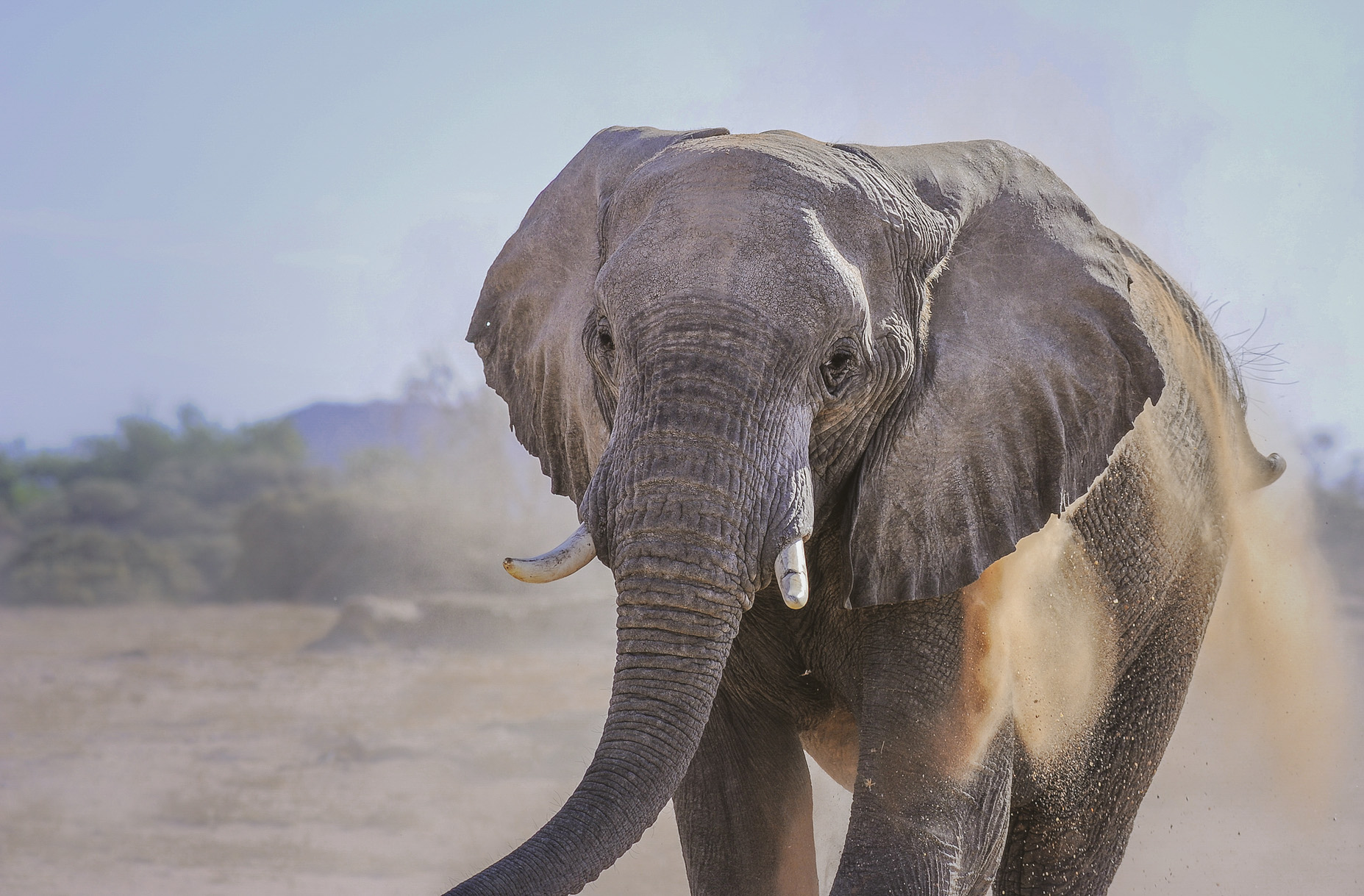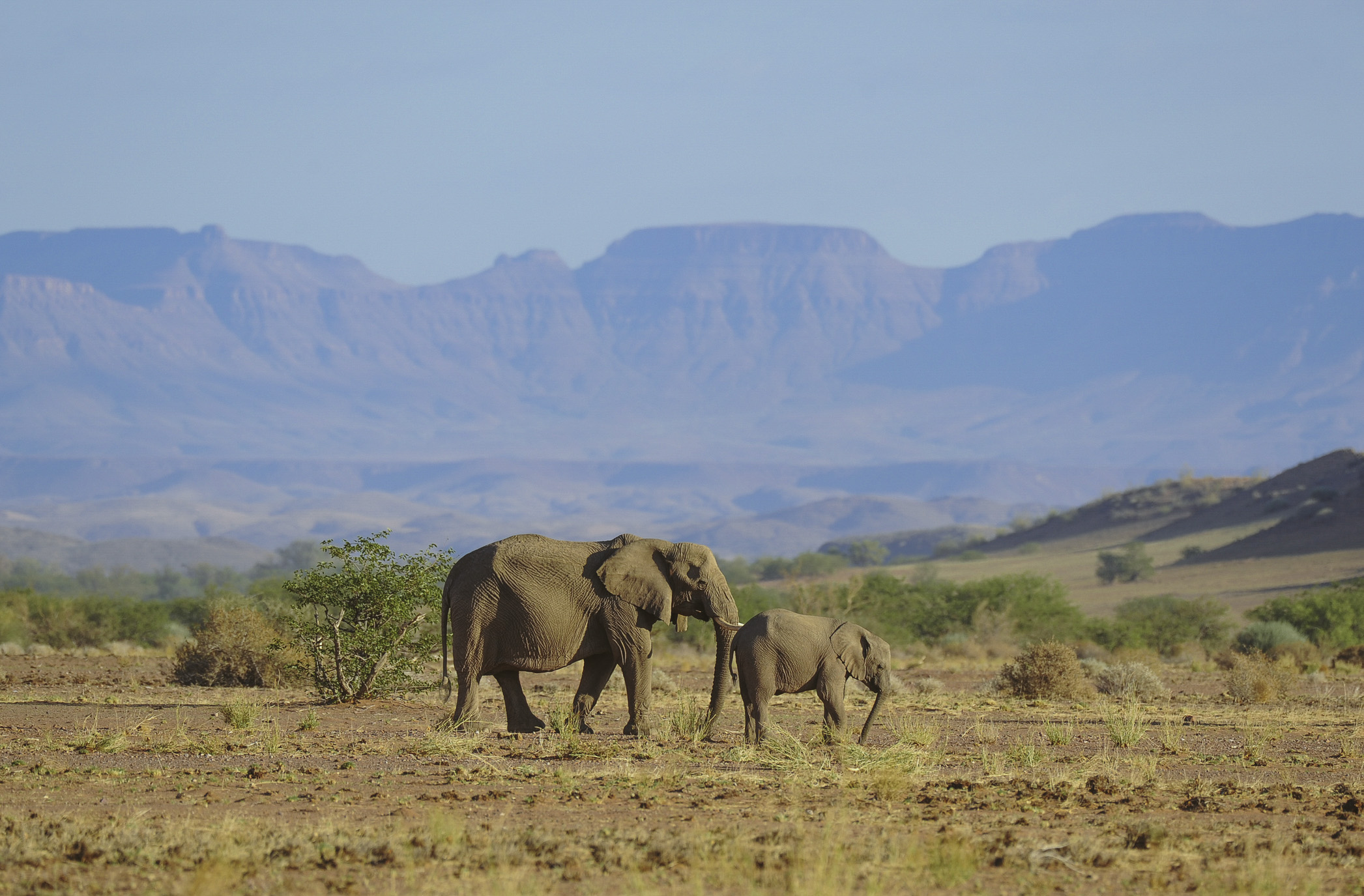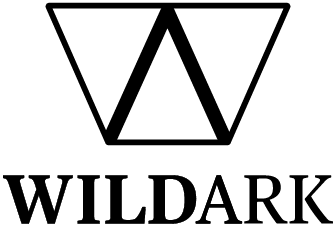The NUII Peace Project, in partnership with NUII and Elephant Human Relations Aid (EHRA), takes place in the Northern Erongo and Southern Kunene Regions of Namibia. Namibia is home to 200 critically endangered desert-adapted elephants.

THE REGION
This region of Namibia is one of our WildArk100 global priority ecoregions, characterised by rugged mountains, gravel plains, and shifting dunes. Water is scarce, however dry river beds are lifelines as they are well-vegetated and home to large mammals such as elephants.
THE ELEPHANTS
The elephant population of Namibia, once estimated to be between 2500 – 3000, was decimated by hunting, poaching, and human-elephant conflict and disappeared entirely by the 1980s. In the late ’90s, an intrepid elephant bull named Voortrekker ventured south, leading a group of elephants back to the Ugab River to take advantage of seasonal resources. Since then, other herds have followed, and there are now five resident matriarchal herds residing along the Ugab and Huab Rivers.


HUMAN – ELEPHANT CONFLICT
Unfortunately, today there are fewer desert-adapted elephants in Namibia than ever due to human-elephant conflict. Competition for food and water often results in conflict between elephants and the humans living alongside them. When elephants enter communal and commercial farms in search of water and food, they destroy water points, raid gardens, and break infrastructure scattering livestock and, on rare occasions, kill people. A herd of elephants can quickly empty a water reservoir that serves animal and family needs. Local communities have lost their knowledge of how to live side-by-side with elephants, and their reaction to elephants can result in dangerous situations.
THE PROJECT
The NUII P.E.A.C.E (People and Elephants Amicably Co-Existing) Project will assist in fostering a peaceful co-existence between people and animals through education and community upliftment.
-
We will build a Co-Existence Education Centre run by locals in which schools, communities, elephant guards, and field guides can learn about elephant behaviour and how to protect themselves during elephant encounters.
-
We will also construct 40 solar water pumps to increase free access to water for both communities and elephants across the region. Currently, these are diesel-fuelled, which requires payment, a challenge for a subsistence community.
